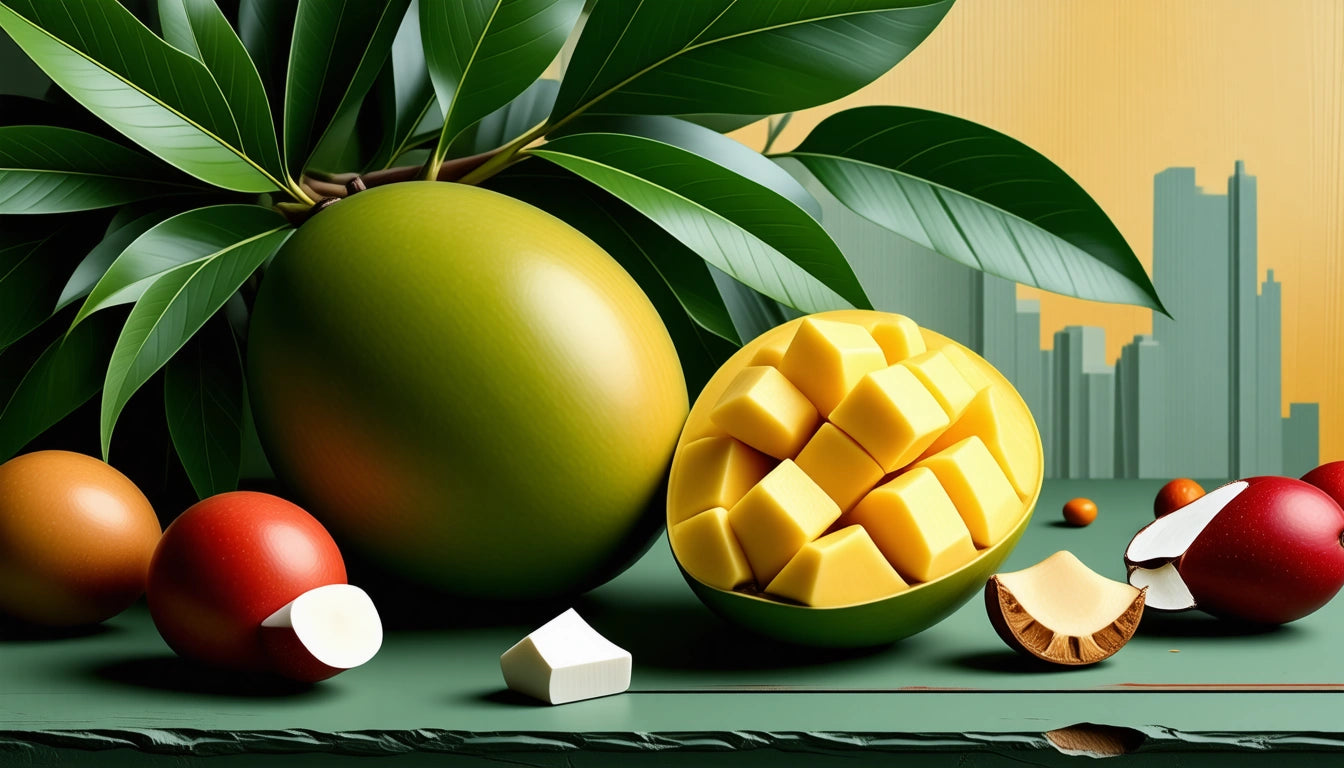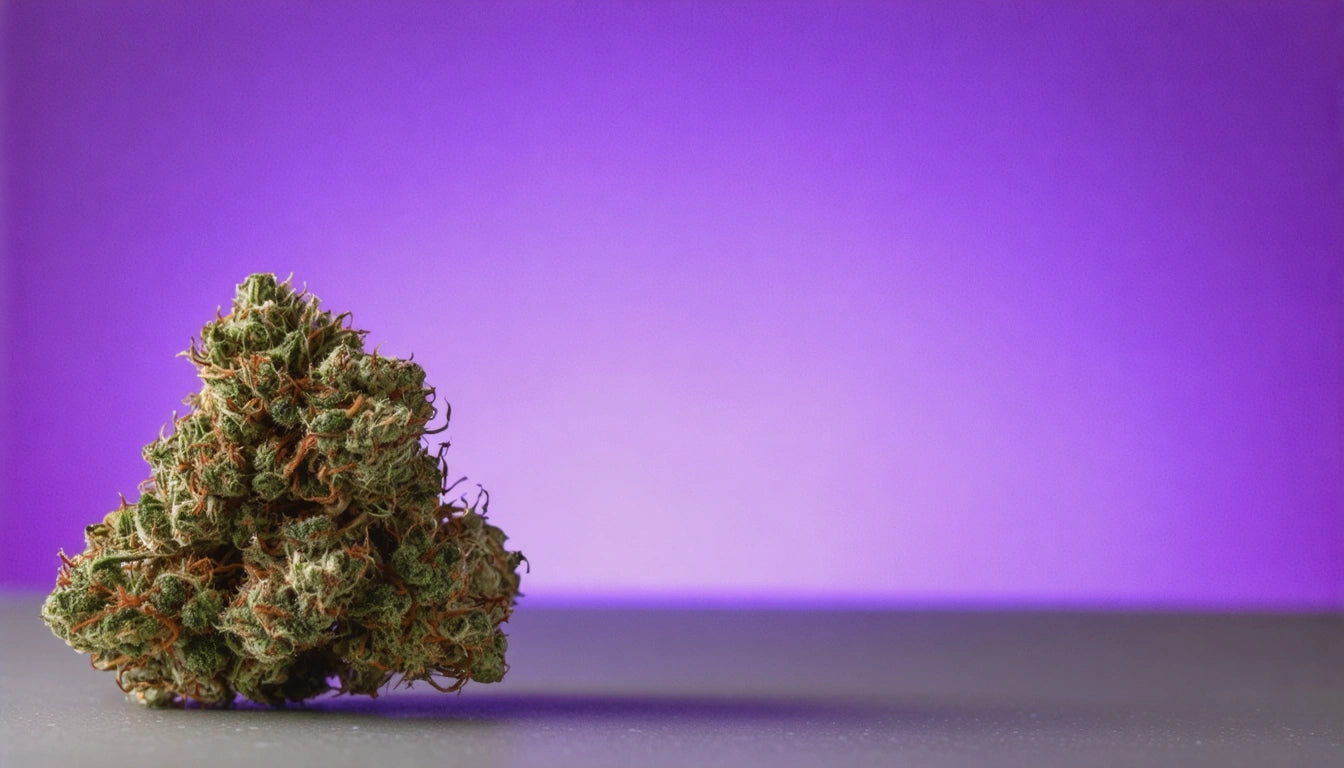Table of Contents
Do Mangoes Enhance the Effects of THC?
The relationship between mangoes and cannabis has generated significant interest among consumers seeking to maximize their experience. Many cannabis users claim that eating mangoes before consumption can intensify or prolong the effects of THC. But does mango really make you more high, or is this simply an urban legend? This article examines the scientific basis behind this popular belief and explores whether mangoes can truly enhance your high.
The Mango-THC Connection: Separating Fact from Fiction
The theory that mangoes boost your high stems from the fruit's natural terpene content, specifically myrcene. Terpenes are aromatic compounds found in many plants, including both mangoes and cannabis. Myrcene is particularly abundant in mangoes and is also one of the most common terpenes in cannabis strains.
According to research on mango consumption and cannabis effects, myrcene may potentially affect how THC interacts with the body. The theory suggests that myrcene might help THC cross the blood-brain barrier more efficiently, potentially leading to faster onset and possibly more intense effects.
The Science Behind Potential Enhancement
Myrcene and the Entourage Effect
The potential enhancement is linked to what scientists call the "entourage effect" - the theory that cannabis compounds work better together than in isolation. Myrcene is believed to contribute to this synergistic relationship.
What are mangoes high in that might contribute to this effect? Mangoes contain approximately 0.086% myrcene, with riper fruits generally containing higher concentrations. This terpene is also found in hops, lemongrass, and thyme, but mangoes are among the most accessible and enjoyable sources.
Blood-Brain Barrier Permeability
One theory suggests that myrcene may increase the permeability of cell membranes, including those that make up the blood-brain barrier. This could potentially allow more THC to reach cannabinoid receptors in the brain, which might explain why some users report that mangoes intensify their high.
Optimal Consumption Methods for Potential Enhancement
If you're wondering whether mangoes enhance THC effects and want to test this theory, timing and consumption methods matter:
- Consume ripe mangoes 45 minutes to 1 hour before cannabis use
- Choose very ripe mangoes with stronger myrcene content
- Consider your metabolism (those with faster metabolisms might need more mango)
- Try mango in different forms: fresh fruit, smoothies, or juice
For those in commercial cannabis production, understanding these interactions can be valuable for product development. Using precision filling equipment for cannabis products ensures consistent dosing when creating edibles that might be consumed alongside complementary foods like mangoes.
Other Foods That May Enhance Cannabis Effects
Mangoes aren't the only foods that may boost your high. Other fruits and foods with potential enhancing properties include:
Terpene-Rich Foods
Foods containing complementary terpenes may work similarly to mangoes:
- Sweet potatoes (contain beta-caryophyllene)
- Black pepper (contains beta-caryophyllene)
- Citrus fruits (contain limonene)
- Nuts (contain various terpenes)
Fatty Foods
THC is fat-soluble, so foods high in healthy fats may improve absorption:
- Avocados
- Nuts and nut butters
- Olive oil
- Coconut oil
Some users report that consuming these foods alongside cannabis can improve bioavailability and potentially enhance effects, similar to how mango might improve your high.
Research Limitations and Personal Variables
Despite anecdotal reports suggesting mangoes boost THC high, scientific research remains limited. Several factors may influence whether you experience enhancement:
Individual Metabolism
Metabolism varies significantly between individuals. Those with faster metabolisms may need to consume more mango or eat it closer to cannabis consumption time to notice any effects.
Tolerance Levels
Regular cannabis users with higher tolerance may not notice as significant an enhancement from mangoes compared to occasional users.
Strain Variability
Different cannabis strains contain varying terpene profiles. Strains already high in myrcene may not show as dramatic an enhancement effect when paired with mangoes compared to strains with lower myrcene content.
As understanding cannabis components continues to evolve, these interactions become clearer.
Future Research Directions in Cannabis-Food Interactions
The relationship between food compounds and cannabis effects represents an emerging area of research with significant potential. As cannabis legalization expands, we can expect more rigorous studies examining whether mango does enhance THC effects and the mechanisms behind such interactions.
Future research will likely focus on:
- Quantifying the exact impact of myrcene on THC absorption
- Identifying optimal timing between mango consumption and cannabis use
- Exploring other food-cannabis interactions beyond mangoes
- Developing products that leverage these natural synergies
For consumers curious about whether mangoes increase your high, the best approach is personal experimentation within safe consumption limits. While the scientific evidence remains preliminary, the anecdotal reports and theoretical basis suggest there may indeed be something to this popular belief.
Whether mangoes significantly enhance your cannabis experience or provide a more subtle effect, they remain a healthy, delicious addition to any diet, with or without cannabis consumption.











Leave a comment
All comments are moderated before being published.
This site is protected by hCaptcha and the hCaptcha Privacy Policy and Terms of Service apply.